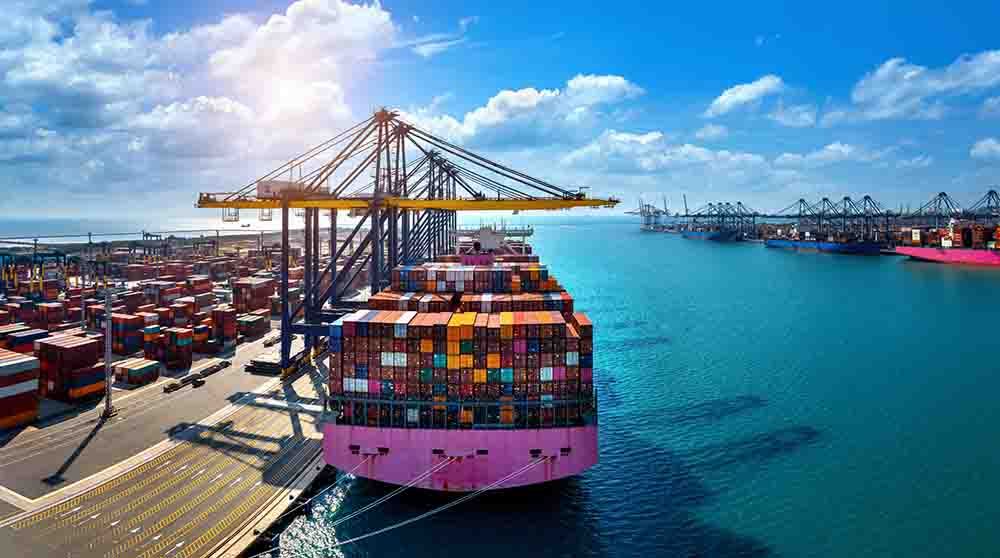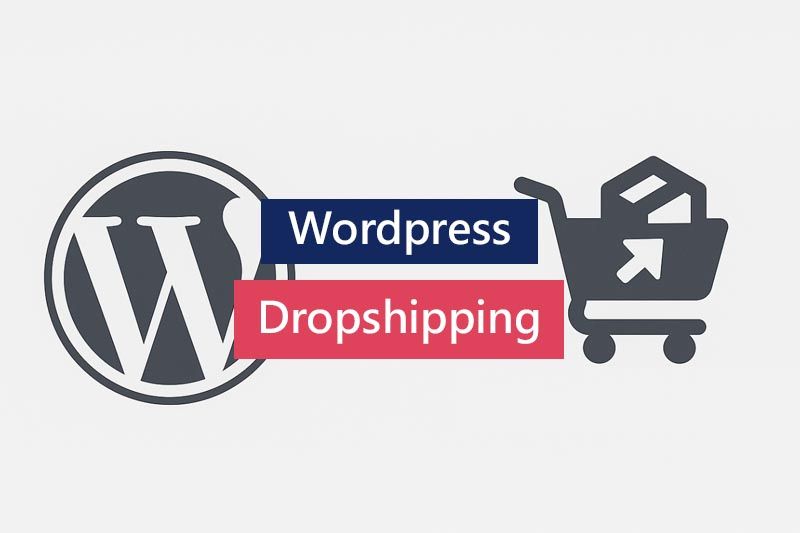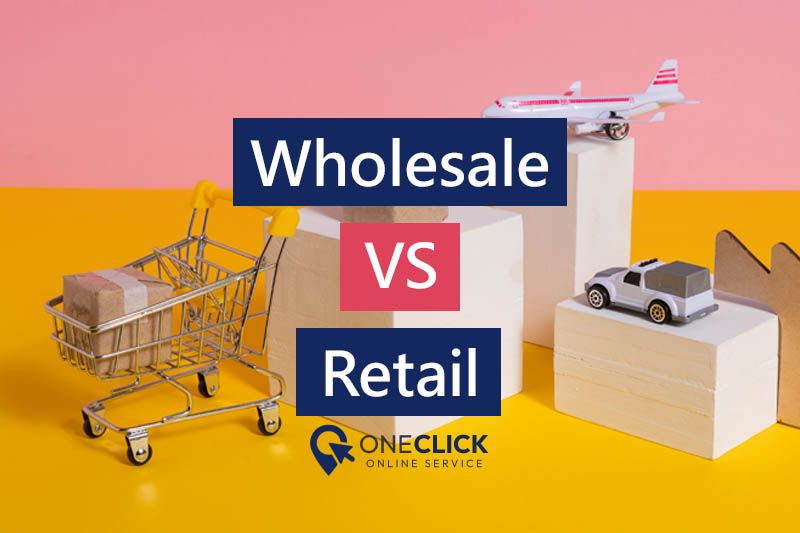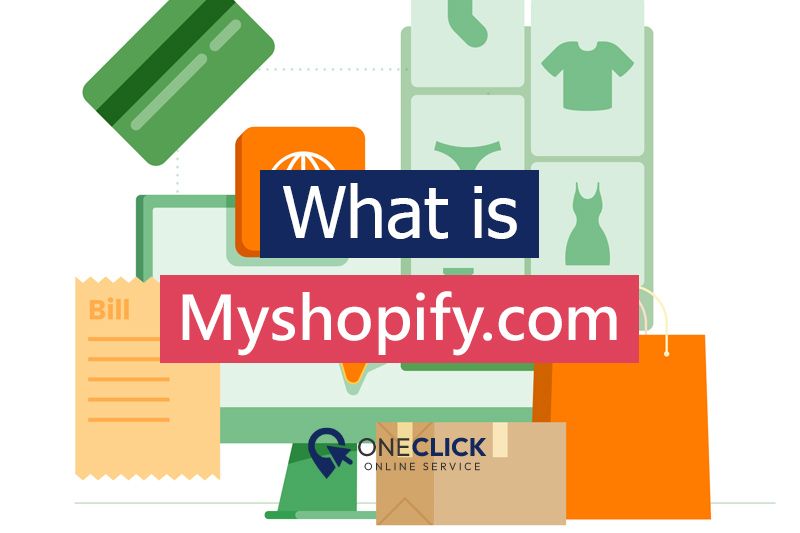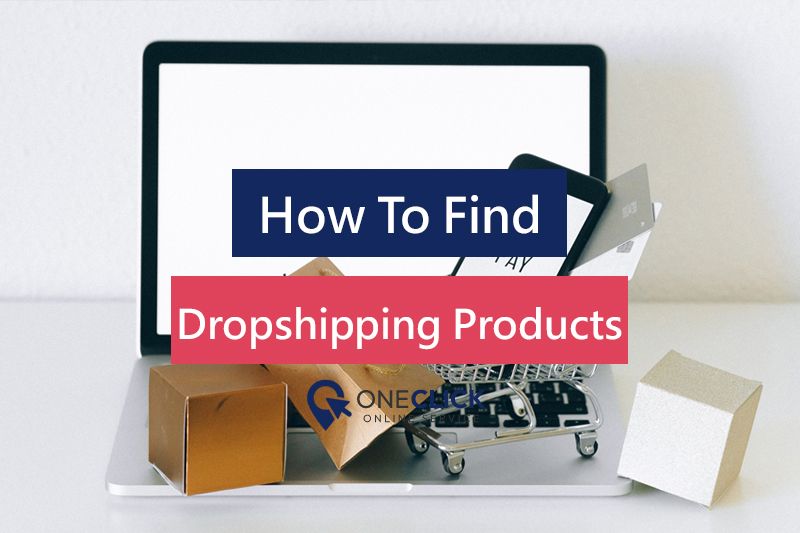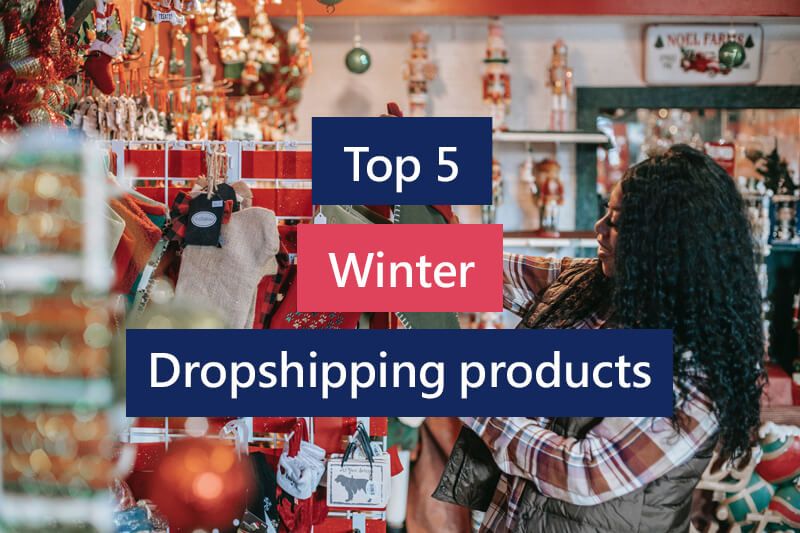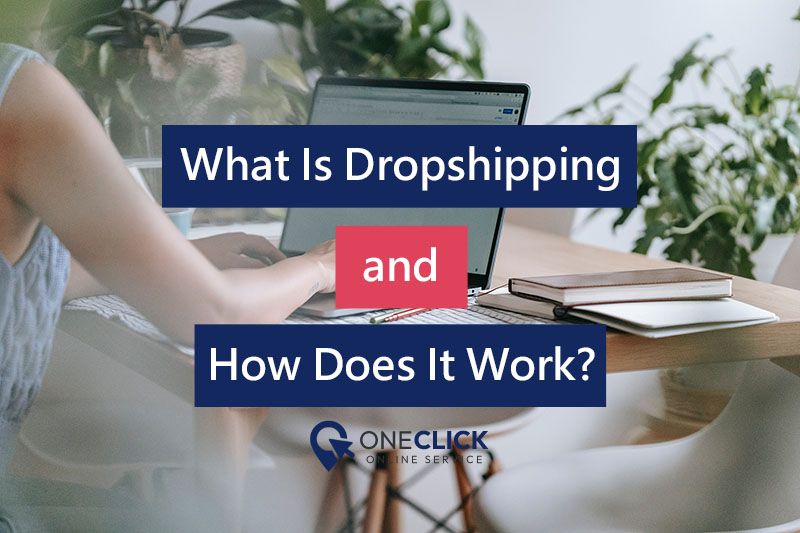A Guide to FOB Incoterms: Free On Board Shipping
Understanding Incoterms is vital for businesses involved in global trade, particularly when sourcing products internationally. One of the most commonly used terms in international shipping is FOB, or Free on Board, which governs the transfer of responsibilities between the buyer and seller.
Whether you're involved in product sourcing from China or another region, FOB Incoterms can help streamline your logistics process. Follow this guide as we dive into FOB Incoterms and how they affect your business.
At OneClick Online Service, we are here to support you in navigating these terms effectively.
What is FOB Incoterms?
FOB (Free on Board) is an Incoterm that defines the point where the responsibility and risk of goods transfer from the seller to the buyer. Under FOB terms, the seller's responsibility ends once the goods are loaded onto the shipping vessel at the port of origin. After this point, the buyer assumes the risk and bears the costs of transporting the goods to their final destination.
This Incoterm is frequently used for sea freight and provides a clear division of responsibilities between the seller and the buyer, making it a preferred option for many companies engaging in international trade. Understanding FOB terms helps businesses avoid potential disputes and ensures clarity in global transactions.
FOB Risk and Costs
FOB Incoterms help define the responsibilities between the seller and buyer during the shipping process. Understanding these responsibilities ensures smooth transactions and effective risk management.

If you are looking for business with minimum cost, start dropshipping
Seller is Responsible For:
- Export packaging to ensure the product is secure for international shipping
- Transporting the goods to the agreed-upon port of shipment
- Handling all export documentation and customs clearance
- Loading the goods onto the vessel at the port of origin
- Ensuring goods are loaded according to contract specifications
Buyer is Responsible For:
- Paying for freight charges once the goods are loaded onto the vessel
- Arranging and covering the costs of insurance during transport
- Handling import customs clearance and duties upon arrival in the destination country
- Managing all logistics for the goods after they have been loaded, including final delivery to their destination
- Assuming all risk of damage or loss from the moment the goods are on board the ship
- Arranging inland transportation from the port to the final delivery point
- Ensuring that the import documentation is compliant with local regulations
In FOB Incoterms, the seller takes responsibility up to the point of loading the goods onto the vessel, while the buyer assumes responsibility for everything afterward, including transportation, insurance, and import procedures.
Using Free On Board (FOB) Incoterms
The use of Free On Board (FOB) Incoterms is particularly advantageous for businesses that require a clear division of responsibilities between buyer and seller during sea transport. FOB allows buyers to have greater control over shipping costs and logistics while minimizing the seller's involvement once the goods are on board.
For companies engaged in product sourcing, especially from China, FOB terms can help streamline international trade. Buyers can work directly with their preferred shipping companies, which provides flexibility in managing costs and delivery times. However, it is essential for both parties to have a clear agreement on the point of transfer to prevent potential conflicts.
FOB Advantages
For Sellers
- Reduces costs by transferring shipping responsibility after goods are loaded.
- Provides control over the export process until goods are onboard.
- Offers flexibility in negotiating export terms with the buyer.
For Buyers
- Allows control over shipping, with flexibility in choosing carriers.
- Transfers risk only after goods are loaded, reducing exposure.
- Greater ability to negotiate competitive freight rates independently.

FOB Disadvantages
For Sellers
- Higher initial costs, including inland transport and export fees.
- Risks associated with loading damage before goods are onboard.
For Buyers
- Assumes responsibility for shipping, insurance, and customs post-loading.
- Higher risk of loss or damage during transit after loading.
Suggested blogs:
FAQs About FOB Incoterms
1. What does FOB mean in Incoterms?
FOB stands for "Free On Board," indicating that the seller's obligations are fulfilled once the goods are loaded onto the buyer’s vessel.
2. What Are FOB Shipping Terms?
FOB (Free On Board) shipping terms specify that the seller fulfills their responsibility once the goods are loaded onto the buyer's chosen vessel at the port of origin. After the goods are onboard, the buyer assumes all risks and costs, including freight, insurance, and delivery to the final destination. FOB Incoterms are commonly used in sea freight and international trade for bulk and non-containerized shipments.
3. How Is FOB Value Calculated?
FOB value is calculated by adding the cost of the goods and the expenses the seller incurs to transport and load them onto the shipping vessel. The seller’s responsibility ends once the goods are on board, making the FOB value distinct from the total landed cost. This value excludes shipping and insurance fees, which are borne by the buyer under FOB terms.
4. Is Insurance Required for FOB Shipments?
Insurance is not required under FOB shipping terms, as it is not the seller's responsibility. Once the goods are loaded onto the vessel, the risk transfers to the buyer, making it their responsibility to arrange insurance coverage. However, buyers often choose to insure their FOB shipments to protect against loss or damage during transit.
5. What Is an Example of a FOB Destination?
In a FOB destination agreement, the seller is responsible for delivering the goods to the buyer's specified location. For example, if a company in New York purchases goods from a seller in Shanghai, the seller is responsible for all costs and risks until the goods are delivered to New York. Once delivered, the buyer takes ownership and liability.
6. What Are the F Category Incoterms?
The F Category Incoterms are shipping terms where the seller arranges transportation to a specified location but does not cover the main carriage.
These include FCA (Free Carrier), FAS (Free Alongside Ship), and FOB (Free On Board).
The buyer assumes responsibility for the main transport costs and risks once the goods reach the specified location or are loaded onto the vessel.
Comparison of F Category Incoterms
| Aspect | FOB (Free On Board) | FCA (Free Carrier) | FAS (Free Alongside Ship) |
|---|---|---|---|
| Mode of Transport | Sea or Inland Waterways | Any Mode | Sea or Inland Waterways |
| Risk Transfer Point | On Board Ship | At Named Place | Alongside Ship |
| Loading Responsibility | Seller | Buyer | Seller |
| Main Carriage Paid By | Buyer | Buyer | Buyer |
| Insurance | Buyer | Buyer | Buyer |
| Export Customs Clearance | Seller | Seller | Seller |
This table highlights key differences between FOB, FCA, and FAS.
7. Who is responsible for shipping under FOB Incoterms?
Under FOB, the buyer is responsible for all shipping, insurance, and risk after the goods are loaded onto the vessel.
8. What costs are covered by the seller under FOB?
The seller is responsible for costs related to the goods up until they are loaded onto the vessel, including export customs clearance.
9. What risks does the buyer assume in FOB Incoterms?
The buyer assumes risk once the goods are loaded onto the vessel, including shipping delays, damage, and insurance coverage.
10. How does FOB differ from EXW (Ex Works)?
Under EXW, the buyer assumes all responsibilities from the seller's premises, whereas in FOB, the seller is responsible until the goods are loaded onto the ship.
11. What documentation is required under FOB Incoterms?
Key documents include the commercial invoice, packing list, export customs documentation, and the bill of lading issued when the goods are loaded.
12. Does FOB Incoterms apply to air freight?
No, FOB is traditionally used for sea freight or inland waterway transport. For air freight, terms like FCA (Free Carrier) are more appropriate.
13. Who handles export customs clearance in FOB?
The seller is responsible for export customs clearance in FOB transactions.
14. Can FOB Incoterms be used for containerized cargo?
Yes, but FOB is typically preferred for non-containerized cargo. For containerized shipments, FCA (Free Carrier) is often more suitable.
15. What is the buyer's responsibility in FOB?
The buyer is responsible for shipping, insurance, and import customs clearance once the goods are loaded onto the vessel.
16. What are the seller’s obligations in FOB?
The seller must ensure that the goods are delivered to the agreed port and loaded onto the buyer's vessel, covering export customs clearance and associated costs.
17. Does the seller pay for insurance under FOB?
No, the buyer is responsible for insuring the goods after they are onboard the vessel.
18. Is FOB suitable for small shipments?
FOB is more commonly used for larger shipments transported via sea freight. For smaller shipments, EXW or FCA may be more suitable.
19. How does FOB benefit the buyer?
FOB allows the buyer to choose and negotiate their own shipping and insurance, providing more control over costs and risks.
20. What happens if the goods are damaged during shipping under FOB?
Once the goods are onboard, any damage or loss during shipping is the buyer's responsibility, unless otherwise insured.
21. Can FOB be used for bulk cargo?
Yes, FOB is ideal for bulk shipments as it transfers responsibility once the goods are loaded onto the vessel.
22. What happens if the buyer fails to nominate a vessel in FOB?
If the buyer does not provide the necessary shipping details, the seller may have the right to cancel the contract or renegotiate terms.
23. What are the limitations of FOB Incoterms?
FOB does not cover containerized shipping well, and the buyer assumes risks and costs once the goods are loaded, which could result in higher transportation costs.
24. Is FOB better for sellers or buyers?
FOB is generally more beneficial for buyers who want control over shipping and costs but limits the seller's responsibility after loading the goods.
25. What Is the Difference between CIF and FOB?
CIF (Cost, Insurance, and Freight) and FOB (Free On Board) differ primarily in responsibility and costs. Under CIF, the seller is responsible for costs, insurance, and freight until the goods reach the destination port. In contrast, under FOB, the buyer assumes responsibility for shipping, insurance, and associated costs once the goods are loaded onto the vessel at the origin port.
26. What Is the Difference between EXW and FOB?
EXW (Ex Works) differs from FOB in the point at which the buyer assumes responsibility. In EXW, the buyer is responsible for all transportation, customs, and export processes from the seller's premises. In FOB, however, the seller is responsible for transporting the goods to the port and loading them onto the vessel. The buyer assumes responsibility once the goods are loaded.
27. What Is the Difference between FCA and FOB?
FCA (Free Carrier) and FOB (Free On Board) differ mainly in the point of delivery. Under FCA, the seller delivers the goods to a carrier or a named place, which can be inland or at the port.
In contrast, FOB is limited to sea freight, where the seller’s responsibility ends once the goods are loaded onto the vessel at the port of origin.
28. What Is the Difference between FAS and FOB?
FAS (Free Alongside Ship) and FOB (Free On Board) differ in the point of risk transfer. Under FAS, the seller is responsible for delivering the goods alongside the ship at the port of origin, and the buyer assumes risk once the goods are alongside the vessel. In FOB, the seller's responsibility extends to loading the goods onto the ship, and the buyer assumes risk only after the goods are onboard.
Proceed to request shipping and purchase the product
Whether you’re shipping by sea, air, or rail, Oneclick Online Service ensures your goods are handled with the utmost care and delivered on time. We provide tailored solutions to meet your specific needs, from cost-effective shipping options to real-time tracking and reliable customs clearance support.
Choose Oneclick Online Service to simplify your shipping process, reduce costs, and ensure a smooth journey for your products from China to any country. Ship smarter with us and focus on growing your business while we take care of the logistics.
Fill out a contact request, and we'll make sure your goods arrive safely and efficiently.



